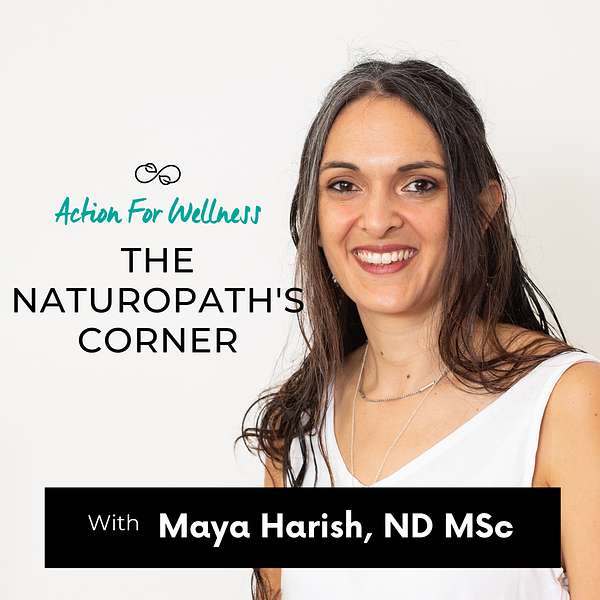
Action For Wellness - The naturopath's corner
Action For Wellness - The naturopath's corner
Ep11- Are the supplements you are taking right for you?
When should I take supplements? How long? How do I know if the supplement is working?
In my first meeting with new patients, I always ask for a list of all the supplements they are taking. I am often surprised by the length of these lists ...
We are all familiar with a situation where something is wrong with us, and we hear a recommendation from friends, or read a recommendation on a website for a supplement, and think to ourselves - what do we have to lose?
Today there are a lot of supplements whose action is so familiar that no one thinks twice about them, like vitamin C in the winter, or probiotics combined with antibiotics. There are indeed situations where it is not a problem to take a dietary supplement by yourself, but this is not always the case. So how do you know when you should seek professional advice before taking supplements?
Let's try to make some order.
First of all - what are nutritional supplements?
Nutritional supplements are products that contain vitamins, minerals, amino acids, plant components, or other nutrients, their purpose is to provide essential elements that we do not get enough of in our diet.
When do we need them?
There are situations in life when, for one reason or another, we have an increased need for a particular element, or we are unable to consume it in sufficient quantities. When this happens, taking a dietary supplement is definitely a simple and convenient "crutch" - as long as we do not forget that the goal is to return to a balanced state in which we do not need the supplement forever.
Taking supplements wisely
When considering whether there is a benefit to a particular supplement, I always think about a few things:
- What is the patient’s state of health - are there any background diseases or things that are worth knowing about? Background diseases can affect our need for various supplements.
- Are you taking any medication? This also includes over-the-counter medications! There are often reciprocal reactions between dietary supplements and herbs, and medications.
- When the supplements are taken can have an impact in cases where several supplements are being taken, if they are combined with medications, or simply in order to ensure effective absorption of the supplement.
- Situations in which the supplement has different derivatives or parts - often different supplements have different derivatives of the same substance, or are simply different types.
- Dosage - I always try to start with the lowest effective dose, both to give the body time to adjust and avoid side effects, and also because many times the supplement packaging recommends a higher dose than is really necessary
Another thing that is important is to pay attention to the effect of the supplements - positive or negative.
It is true that we cannot always know, and most of us will not notice any immediate effect when taking a supplement. I do not know anyone who has noticed the effect of taking vitamin C, for example, unless they are taking a dose high enough to suffer from side-effects (over 2 grams per day). What I really mean by paying attention to the effect of the supplement is that we want to know if the supplement is helping, or not. If you have started taking a supplement and you feel unwell, stop taki
Thank you so much for listening to our podcast!
We'd love to continue the conversation, so please follow us on social media
https://www.instagram.com/maya_naturopathy/
https://www.facebook.com/ActionForWellness
And of course as usual the full information discussed on the blog is available on the website
mayanaturopathy.co.uk
Maya x
